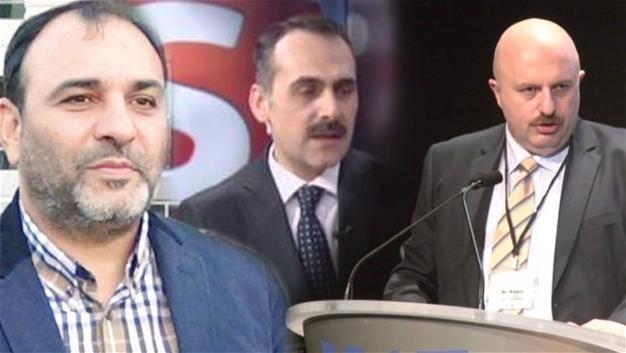Detention warrants issued for three journalists over coup attempt
ANKARA

Detention warrants have been issued for three journalists in a probe into the attempted July 15 coup, which is believed to have been masterminded by the followers of the U.S.-based Islamic preacher Fethullah Gülen.
The warrants were issued for Bülent Keneş, Şemseddin Efe and Abdulkerim Balcı, who were working in Gülen-related media organizations that were previously closed down.
Keneş, who was the former editor-in-chief of Today’s Zaman; Efe, who was a commentator on Samanyolu TV; and Balcı, who was a former columnist in daily Zaman, are charged with “attempting to stop the government of the Turkish Republic from carrying out its duty or attempting to destroy it,” Anadolu Agency reported on Oct. 18.
The warrants were issued as part of an investigation being conducted by prosecutor Can Tuncay of the Istanbul Chief Public Prosecutors Office’s Terror and Organized Crime Bureau.
According to the prosecutor, the journalists’ names were involved in many probes related to the Fethullahist Terrorist Organization (FETÖ).
“The suspects contributed to the perception of overthrowing the government via media organs. They also stated in social media and other media organs that the coup will be successful. When the power of media in the eyes of the public is taken into account, the elements of a crime are prominent,” a statement by the prosecutor read, adding that the whereabouts of the three journalists was unknown.
Separately, a delegation from the main opposition Republican People’s Party (CHP) visited imprisoned journalists Nazlı Ilıcak and Hanım Büşra Erdal and writers Necmiye Alpay and Aslı Erdoğan. The delegation consisting of Sezgin Tanrıkulu, Mahmut Tanal, Şafak Pavey and Utku Çakırözer visited the Bakırköy Female Prison in order to see the writers and journalists.
“Our arrest isn’t a lawful decision, it’s a political decision. In my articles, I defend that the Kurds and the Turks should live together. How can it be a crime?” said Erdoğan, who was a member of daily Özgür Gündem’s advisory board and columnist before being arrested for alleged links to the outlawed Kurdistan Workers’ Party (PKK) on Aug. 20. Özgür Gündem was shut down for allegedly engaging in PKK propaganda.
Ilıcak told the delegation that “her friends are in the parliament and she is declared a terrorist.”
“I’m a journalist, I didn’t have any connection with terrorist organizations. We sat in the same rows with AKP [ruling Justice and Development Party] lawmakers who are in parliament today. The people I shared the common cause with those who are in parliament and I’m declared a terrorist. I don’t accept that,” she said.
 Detention warrants have been issued for three journalists in a probe into the attempted July 15 coup, which is believed to have been masterminded by the followers of the U.S.-based Islamic preacher Fethullah Gülen.
Detention warrants have been issued for three journalists in a probe into the attempted July 15 coup, which is believed to have been masterminded by the followers of the U.S.-based Islamic preacher Fethullah Gülen.